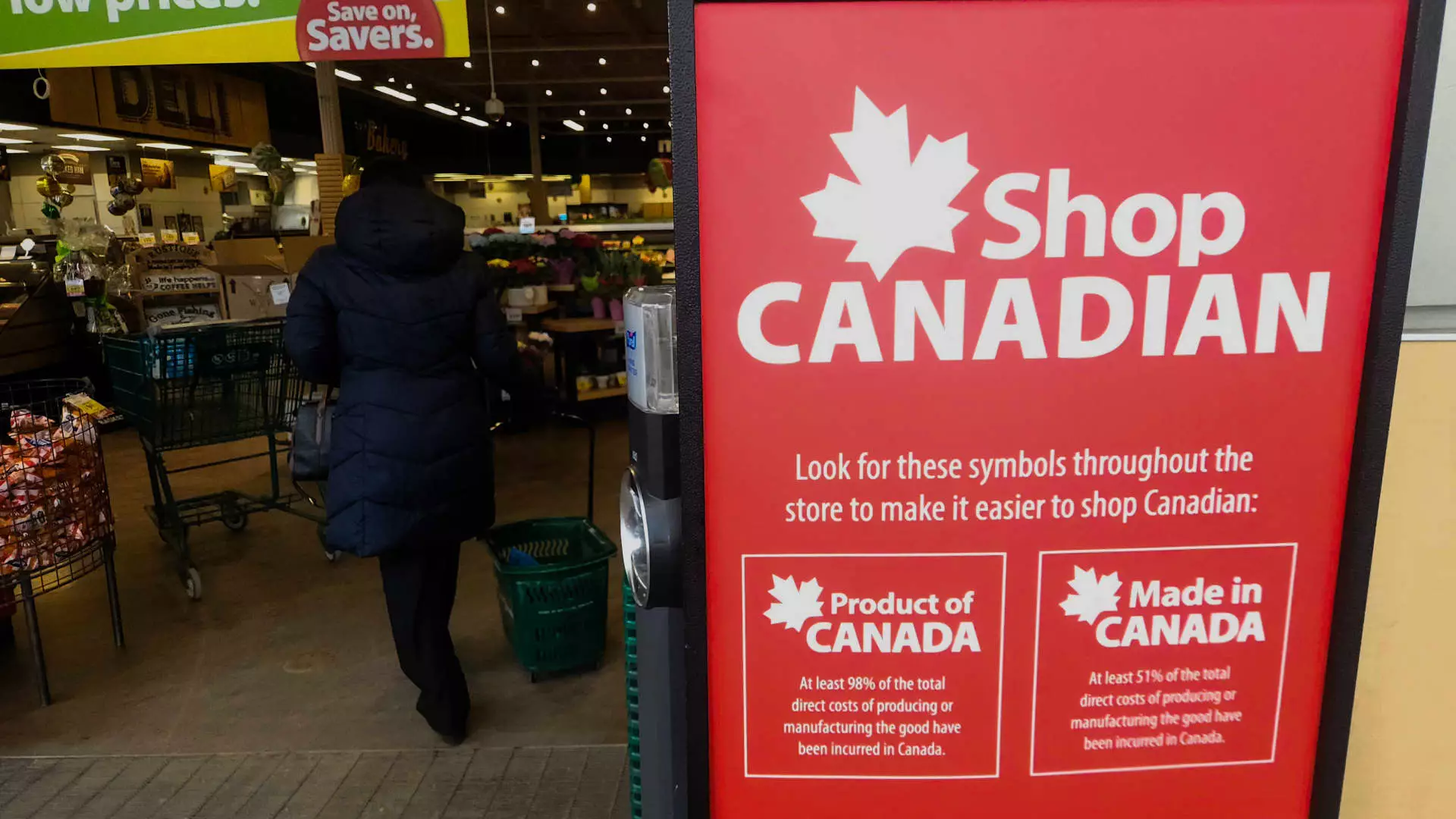Across the heart of North America, a troubling trend unfolds as tariffs implemented by former President Donald Trump leave a deep emotional and financial scar on small businesses in Canada. These tariffs, meant to recalibrate trade balances and revive U.S. manufacturing, have unintentionally alienated a steadfast ally. Australia and the UK might reminisce about their shared histories of camaraderie, but Canada’s situation is uniquely distressing. With a trade volume of $762.1 billion in 2024, the importance of the U.S.-Canada trading relationship cannot be overstated. Here, the stakes are not merely economic; they’re rooted in trust, goodwill, and shared challenges.
The emotional toll on these small enterprises cannot be dismissed. A café chain renaming its espresso to “Canadiano” or Canadian grocery stores labeling products as “prepared in Canada” might seem whimsical, but this illustrates deeper sentiments at play. These businesses are participating in an unanticipated cultural resistance, showcasing national pride in the face of uncertain economic adversity. The steps they take to reassure consumers about the origins of their products represent a heartening community response, but it’s also a reflection of a threatened identity due to external pressures.
Shattered Trust: The New Trade Landscape
The Canadian Federation of Independent Business (CFIB) has shed light on a startling sentiment within its ranks: over half of its members believe that the United States is no longer a trustworthy trading partner. In an economic environment that should thrive on mutual benefit, this revelation stands as a harsh indictment of the current geopolitical climate. Tariffs that ostensibly aim to protect domestic industries are instead rupturing long-standing business relationships. Companies are now caught in a whirlwind of confusion, forced to reconsider longstanding contracts and partnerships that were once built on mutual resilience.
These tensions have birthed questionable loyalties, as business owners grapple with difficult decisions regarding where to place the burden of increasing costs and eroded trust. The effects are pervasive, extending far beyond mere fiscal concerns; they touch the core of what has traditionally been an amicable relationship. The psychological impact of betrayal weighs heavily on entrepreneurs who previously felt secure in their dealings with U.S. counterparts. The emotional distress that manifests among business owners is irrefutably excessive when one considers that trade should be a channel of cooperation rather than friction.
The Bitter Taste of Retaliation
As tariffs on Canadian imports took root, government entities in Ontario, such as the Liquor Control Board, responded with their own measures, halting purchases of U.S goods entirely. This reaction illustrates another layer of the growing chasm between the two nations. The outright refusal to stock American brands—once common consumer staples—sends a strong message of resistance. Slogans like, “For the good of Ontario, for the good of Canada,” demonstrate how deeply the others feel cornered and betrayed by the ongoing trade war.
Support for Canadian products has surged, as well. More than a quarter of CFIB members reported amplified demand for locally-produced items. While such patriotic actions seem empowering, they mask the reality that international trade relationships are increasingly becoming personal battlegrounds, where national pride prevails over mutual economic interests.
A Shadow of Soft Power
The broader implications of the U.S.-Canada tariff situation extend to the notion of “soft power”—the ability to influence others through cultural or ideological means rather than through coercive tactics. Former Secretary of State Antony Blinken expressed concern that these trade tensions could diminish U.S. standing on the global stage. The once-symbolic strength of the U.S. in fostering cooperative relationships is at risk of being overshadowed by an atmosphere riddled with resentment.
The reality is stark: even if tariffs are scaled back, the long-term damage to the fabric of the trade agreement can’t simply be stitched back together overnight. Trust, once shattered, often leads businesses to redefine the boundaries of their engagements—and re-establishing these connections isn’t merely transactional. It requires the carefully tendered work of rebuilding relationships that were painstakingly crafted over years.
The Path Forward: A Wounded Alliance
While the future may seem bleak amid the shadows cast by tariffs and mistrust, there remains a flicker of hope. The desire for a sturdy, interwoven trade relationship still exists, but it will require significant effort from both sides. Erosion of trust takes time and resolve to mend, presenting a challenge that is just as much about emotional connections as it is about economic considerations. Entrepreneurs must navigate a new landscape in which transparency, localization, and partnerships become paramount to fostering goodwill in a recovering relationship.
In anticipating the eventual re-establishment of cooperative trade practices, one can only hope that the difficult lessons learned from these past tariffs result in a more resilient and understanding partnership—one forged not only through commerce but also through shared values and respect for the foundational bonds that connect these two nations.

